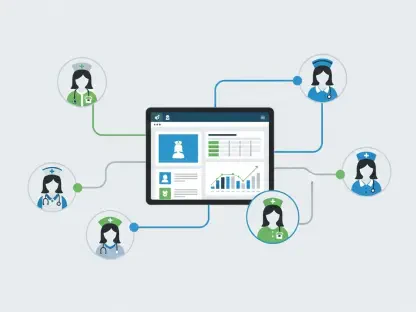A funding round with life-and-death stakes: can $8M move the needle?
Eight million dollars is an impressive headline for an early-stage health company, yet in women’s mental health the number reads as a wager on whether sharper detection, faster intervention, and steadier follow-up can change outcomes that too often teeter between recovery and catastrophe. Tucked behind the funding figure is a stark reality: women carry twice the rates of depression and anxiety, one in three will experience a mental health condition across a lifetime, and suicide remains the leading cause of maternal death in pregnancy and postpartum.
The central question is whether capital used for integrated care can rewire front-door access. Today, fewer than 10% of Medicaid members and fewer than 4% of privately insured patients are screened for postpartum depression. Meanwhile, roughly 70% of women in perimenopause or menopause report mental health symptoms—anxiety, depression, insomnia, cognitive changes—that rarely receive coordinated follow-up. The funding arrives as a test of scale and staying power.
Why integrated women’s mental health matters now
OB/GYN settings offer frequent touchpoints across fertility, pregnancy, postpartum, and menopause. The trust and continuity forged in these visits enable screening that feels routine rather than stigmatizing, and referrals that land with speed. When behavioral health is embedded, detection rises and intervention happens earlier—often before crises reshape families and workplaces.
Momentum is building around insurer-covered virtual care, giving clinics a way to extend services between visits. Employers and payers see upside in reduced complications, steadier return-to-work timelines, and cost containment. “Every week a new mom returns earlier and with better support is a win for families and budgets,” said a benefits leader at a national retailer.
How FamilyWell plans to deploy $8M—and what could change
FamilyWell aims to expand beyond current operations in Massachusetts, New Hampshire, Connecticut, Illinois, and Texas, prioritizing health systems and payers ready for integration. The model embeds screening-to-treatment pathways inside OB/GYN workflows and delivers insurer-covered virtual services from care managers, coaches, therapists, and psychiatric providers.
AI features are slated to triage risk, support clinical decisions, and automate workflows that speed follow-up. Training through FamilyWell Academy will scale perinatal and menopause behavioral health certification programs to upskill frontline clinicians and close access gaps. “Give OB teams the tools, and they catch what used to slip by,” said an OB nurse manager at a large community hospital.
What experts and evidence suggest about this approach
Research has long shown that integrated behavioral health increases detection and reduces maternal morbidity. Studies tie embedded care to fewer emergency visits and lower readmissions, particularly when follow-up occurs within 72 hours. For menopause, coordinated care that pairs insomnia treatment with targeted therapy improves adherence and stabilizes mood.
Payers and employers increasingly back coverage for integrated virtual services, citing savings from avoided complications and earlier return-to-work. A composite patient illustrates the stakes: a postpartum patient who missed screening spiraled into anxiety and insomnia; once enrolled in an integrated pathway, she engaged in therapy within four days and reported symptom reduction by week six. A menopause vignette echoes the point: coordinated support addressed sleep and mood together, restoring function that scattershot referrals had failed to deliver.
Playbooks and guardrails to make integration work
Successful practices build a clear screening-to-referral-to-treatment workflow, train staff on perinatal and menopause behavioral health, and set service-level agreements for follow-up within 48–72 hours. Health systems stand up centralized care coordination hubs, integrate EHR prompts and registries, and track KPIs like screening rates, time-to-first-visit, symptom reduction, and readmissions.
Payers align benefits to cover integrated virtual services and pilot value-based contracts tied to maternal outcomes and return-to-work metrics. Employers offer targeted benefits from fertility through menopause and normalize screening to boost uptake. Equity remains a guardrail: programs address stigma, language access, and digital divide, monitor for algorithmic bias in AI-enabled triage, and ensure culturally responsive coaching and therapy.
FamilyWell’s evidence-based, payer-aligned stance—now serving more than 200,000 lives—sat within a competitive field that included Mavida Health and Seven Starling, but differentiation rested on integration depth, a training engine, and value-based readiness. If the $8 million translated into national reach, faster triage, and a trained front line, the wager on integrated women’s mental health had pointed toward measurable gains, clearer standards, and a blueprint that others could adopt next.









